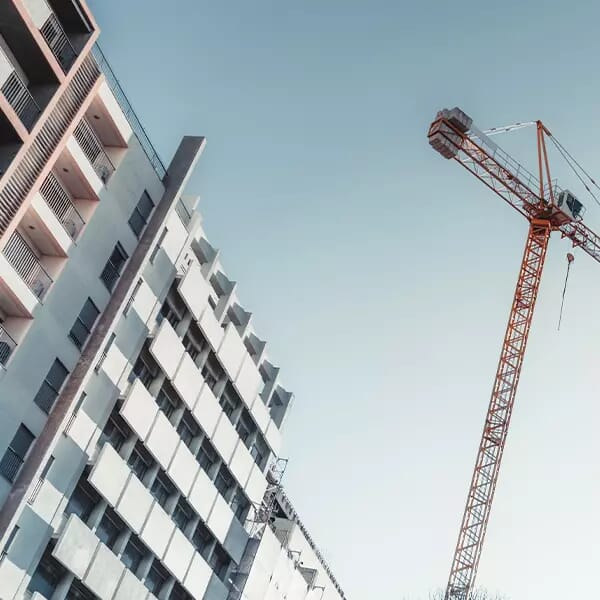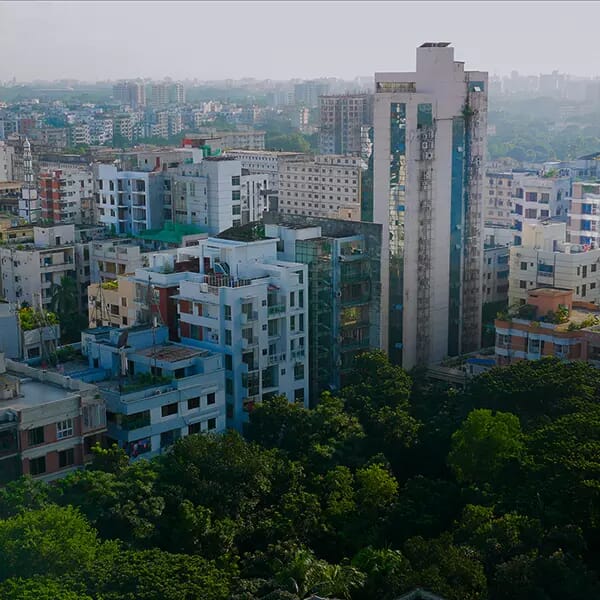 Credit: Towering Goals / Shutterstock
Credit: Towering Goals / ShutterstockIndia Analysis 2023 - Hospitality enters super cycle but offices remain quiet
February 10, 2023Real Estate
Members of GRI Club India with assets under management and capital at risk in the country gathered at The Executive Centre in Mumbai on January 24th for Reflection 2022, Outlook 2023 to take a look back at what worked and what didn’t in the past year, before turning their attention ahead at what’s to come. This GRI Club Meeting, co-hosted by Colliers, gave the attendees the opportunity to engage with their peers, meet new partners, foster collaborations and deal flow, and get some helpful reality-checks.
In their discussion on hospitality, the participants observed how it is currently the most bullish asset class - just ahead of warehouses and logistics - and that it has entered a 7-9 year super cycle with demand 39% higher than supply. Another factor that was raised concerned an expected decrease in international travel by Indians, which could lead to increased demand for hospitality.
Physical occupancy in offices is a challenge being faced in India. Rates range from 25-30% but there is significant variation on a city-by-city basis, with some cities and industries sitting as low as 10% and others as high as 60%. 2023 is expected to be a difficult year in the short term, but the attendees expressed optimism in medium to long-term office leasing prospects. On a more generally positive note, investor interest in the sector has been strong over the past 6 months, reaching its best levels in 10 years.

Another topic covered at the event was China's economic slowdown, with real estate development investments, commercial floor space sales, and commercial property revenue all seeing significant decline, while India’s property price index has grown consistently over the past several years. This has the potential to benefit the Indian real estate market by attracting foreign investment and businesses looking for alternative markets. However, the actual impact on the Indian market will be dependent on various factors, including the competitiveness of India's own economy, the specific industries and sectors that are being impacted, and the overall global economic climate.
With realistic assessments of the past year, a range of positive developments on the horizon, and some key strategic insights for the future on offer, our members once again enjoyed the opportunity to discuss major industry matters with their peers in a relaxed, informal setting.
To stay up to date on how the situation develops and to benefit further from the wealth of knowledge on offer, you can register now to attend GRI Logistics & Warehouses India 2023 on April 26th and GRI Offices & Parks India 2023 on April 27th, both taking place in Mumbai.
You can also subscribe to the GRI India Newsletter to get all the latest news from the region.
Written by Rory Hickman
New Industries and Hospitality
The warehousing and logistics industry was noted as having had a record year, driven by demand from new industries that included specialty chemicals, electric vehicles, cold storage, and photovoltaics. The members also pointed out that, unlike in previous years, e-commerce is no longer the main driver of demand.In their discussion on hospitality, the participants observed how it is currently the most bullish asset class - just ahead of warehouses and logistics - and that it has entered a 7-9 year super cycle with demand 39% higher than supply. Another factor that was raised concerned an expected decrease in international travel by Indians, which could lead to increased demand for hospitality.
Physical occupancy in offices is a challenge being faced in India. Rates range from 25-30% but there is significant variation on a city-by-city basis, with some cities and industries sitting as low as 10% and others as high as 60%. 2023 is expected to be a difficult year in the short term, but the attendees expressed optimism in medium to long-term office leasing prospects. On a more generally positive note, investor interest in the sector has been strong over the past 6 months, reaching its best levels in 10 years.

Residential and Regional Developments
The Indian residential real estate market also appears optimistic following success in all four quarters, with renters wanting to buy homes and current homeowners seeking bigger, higher-quality houses or even second homes. Foreign capital has been received but it has not been necessary for growth. It was also observed that there is a move towards describing the mid-income housing market as "aspirational" rather than "affordable". The conversion of commercial to residential property is an area of future interest, but concerns exist for 2023 due to interest rates and job losses.Another topic covered at the event was China's economic slowdown, with real estate development investments, commercial floor space sales, and commercial property revenue all seeing significant decline, while India’s property price index has grown consistently over the past several years. This has the potential to benefit the Indian real estate market by attracting foreign investment and businesses looking for alternative markets. However, the actual impact on the Indian market will be dependent on various factors, including the competitiveness of India's own economy, the specific industries and sectors that are being impacted, and the overall global economic climate.
With realistic assessments of the past year, a range of positive developments on the horizon, and some key strategic insights for the future on offer, our members once again enjoyed the opportunity to discuss major industry matters with their peers in a relaxed, informal setting.
To stay up to date on how the situation develops and to benefit further from the wealth of knowledge on offer, you can register now to attend GRI Logistics & Warehouses India 2023 on April 26th and GRI Offices & Parks India 2023 on April 27th, both taking place in Mumbai.
You can also subscribe to the GRI India Newsletter to get all the latest news from the region.
Written by Rory Hickman



